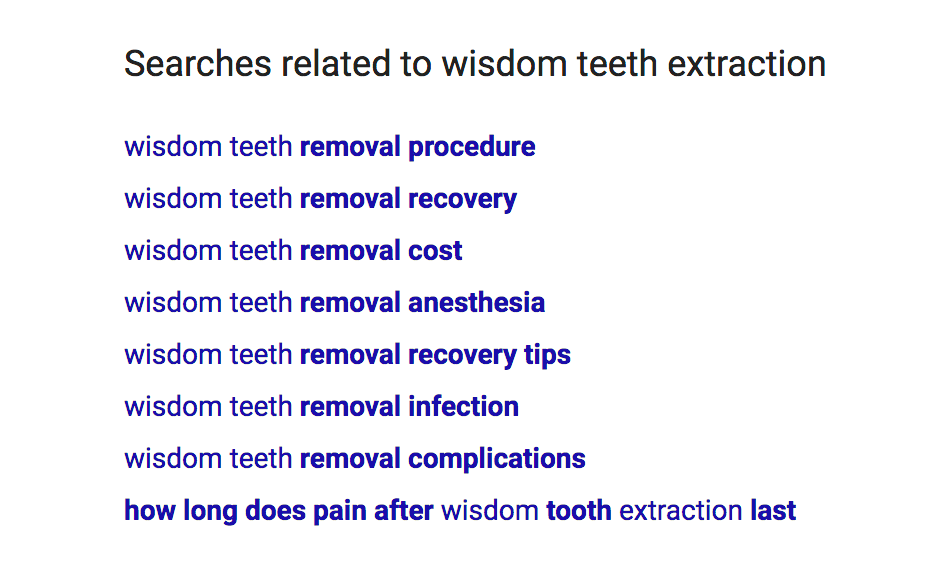Your dental office’s website is designed to build trust and establish relationships between potential patients and your practice. One of the most meaningful ways to do this is by providing useful solutions to the problems your potential patients are facing.
This is much easier said than done, however, and many dental offices struggle to convert their website into an effective and profitable lead generation tool.
A particular dental office may be fighting to bring in new patients for various reasons. It is not uncommon for dentists to be clueless on how a search engine works, or how a prospective patient uses Google to look for a dentist. Today’s post is not covering this topic, but if you want to learn more about it, check out: A Dental Office SEO #TRUTHBOMB To Save Your Cash.
While there are plenty of dentists who understand the value of quality content in digital marketing– but they aren’t sure where to start when developing a strategy, or are already producing content with little value to prospective patients.
Stepping Inside the Minds of Your Potential Patients
The most reliable way to produce the ideal content for your dental office’s website is to consider your potential patient’s mindset.
Think about the common questions your patients ask (those questions they ask you are the identical to what they ask Google as they try to learn more about symptoms or treatments.) Asking these questions will help you understand what topics your patients will find valuable and helpful.
In this post you will learn about ways you that can fine-tune your efforts in researching, composing, and publishing the content that both current and potential patients will find most useful and engaging, and that Google is more apt to rank in search engine results for related searches.
This is how we do it at AdInfusion:
Begin By Brainstorming Questions and Topics that Relate to Your Dental Office’s Area(s) of Practice
As you start to plan out your content, you will start to ponder what topics to blog about. Starting with broader, more general topics relevant to your specific practice is always a good idea.
For example, take an oral surgeon in California who may begin by listing related topics like:
- Tooth Extraction Sacramento
- Face Trauma Recovery
- Cost of Removing Wisdom Teeth
After brainstorming the broader topics, consider other related phrased and keywords that could be used by potential patients when they are looking online for a dentist.
As you do this, don’t forget that questions users are asking are becoming increasingly more complex as search engine technologies get more adept at answering such queries.
Oftentimes, a user won’t actually search for the words, “oral surgeons”. They could be making searches like, “How can I get my wisdom tooth extracted without a surgery?” or “treating face trauma without surgery” in the place of “oral surgeon California.”
Potential patients can also be looking for answers to particular questions like,:
- What are some treatments for intraoral lacerations?
- What can I do if I have a TMJ disorder?
- What is the difference between a sinus or ridge augmentation?
- What to do if I need to get dental implants but don’t have insurance?
If you’re still struggling to come up with a list, check out “How to Do Keyword Research For Your Dental Office Like a Boss
Consider Related Search Terms
By now your list should have multiple short phrases, keywords, and questions that your prospective patients usually ask you.
Take the next step by thinking about terms similar to what your potential patients may be searching for. Your patients may not know all of the dental jargon so determining synonyms and related terms will aid in pinpointing the type of language potential patients use to search for you.
Google has two resources that can be of great help in determining those related terms: “searches related to…” and “People also ask.”
Let’s go back to the search for an oral surgeon in California again. This is what you will find if you searched “Wisdom Teeth Extraction”

Example: “Searches related to” section in Google search results
“Wisdom teeth removal recovery”, “wisdom teeth removal cost”, “how long does pain after wisdom tooth extraction last”, and “wisdom teeth removal infection” are just a few of the possible subjects a oral surgery dental office can add to their expanding list of patient concerns.
Next, move over to a Google search for each of these topics and you will see even more specific keywords, phrases, and potential questions to add to the list.
Check Out Your Dental Office’s Competitors
After developing your list of questions and topics, check out the dental offices and dentists showing up on Google Searches for those specific keywords and key-phrases.
If you see that your competition comes up for certain queries on the SERPS, invest some time in reviewing their website to see what kind of content they produced on these topics. It is most likely informational and relevant content of answers to particular questions a prospective patient may be asking.
I do not mean to say that you should plagiarize your competitor’s content, but simply review what is available out there and how you will take the approach to answering the same medical questions and subjects.
Don’t forget that although your competition is reporting on same questions or topics, it does not mean you can not develop your individual interpretations on the subject that underline the attributes of your dental office and expand on your character that will resound with your ideal patients.
Publish High-Quality content that Addresses the Concerns of Your Potential Patients
Now you are informed on what questions your potential patients are searching for. You have taken the starting step. The next step is to create and publish enticing content directed towards those questions or topics.
Think about the list you have created and start to develop a plan of how you will produce posts and pages for your site to cover those subjects. Don’t engage in keyword stuffing content. If you are successfully publishing posts that are responsive to what potential patients want, the correct keywords will show up organically within your writing.
Do you lack the time to create your own blogs? AdInfusion has top of the industry content writers that can produce and publish engaging content that will attract new patients to your website and convert them into your permanent patients. Let’s talk more about how we can help you expand your dental marketing success. Contact us for more information.



